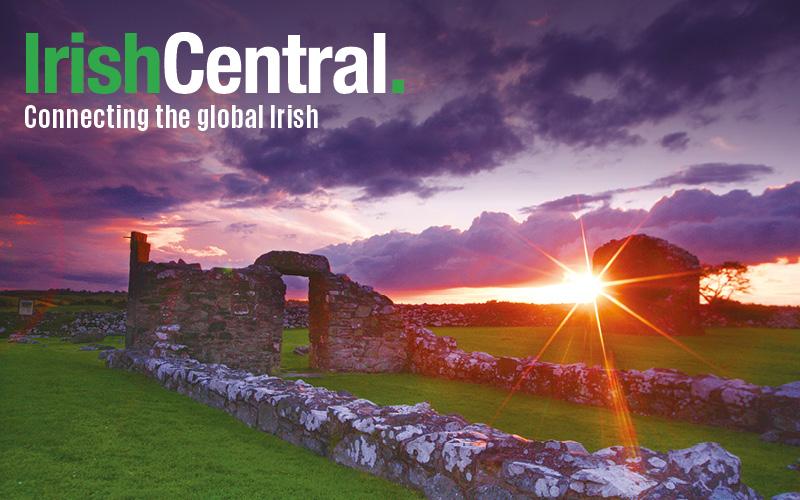Over 25 events are planned by University College Dublin (UCD) to commemorate the decade of centenaries. As a major holder of archives of national and international significance relating to the period 1912 to 1923, UCD is commemorating the events of this decade in order to inform national debate and understanding.
Minister for Arts, Heritage and the Gaeltacht, Heather Humphreys visited UCD Archives earlier this month to officially launch the UCD Decade of Centenaries program.
Speaking from the UCD Charles Institute, which houses the famous Kevin Barry window, the Minister said, “The scale, ambition, depth and breadth of the UCD commemorations forms a seminal part of the national program.”
The Minister examined some of the unique papers, documents and photographs held by UCD Archives including the diary of civil servant JR Clarke and the 450 interviews Ernie O’Malley conducted with people active in the revolutionary period from the Rising to the end of the civil war.
The historic Kevin Barry window was commissioned by UCD graduates in the 1930s to commemorate 19-year-old medical student Kevin Barry, who was executed in the War of Independence. Created by the Harry Clarke studio, the window depicts the long struggle for Irish freedom in stained glass. It consists of eight panels: one of which shows the signatories of the Proclamation along with nurse Elizabeth O’Farrell in the GPO during the Rising.
One-hundred years ago, as the steps towards independence gathered momentum, many staff, students and graduates of University College Dublin played a pivotal role in the actions that took place.
Among the staff of UCD who played a role in the events of 100 years ago were Thomas MacDonagh, Assistant Professor of English, signatory of the Proclamation and commandant of the Dublin Brigade, Eoin MacNeill, Professor of Early and Medieval Irish History, and Irish Volunteers Chief of Staff , Mary Hayden, Professor of Modern Irish History and founder of the Irish Catholic Women’s Suffrage Society, and Agnes O’Farrelly, Lecturer in Modern Irish and founder of Cumann na mBan.
Students and graduates too numbered among the activists who fought for social justice, women’s rights and of course independence. Well-known names included Louise Gavan Duffy, Francis and Hanna Sheehy Skeffington, Padraig Pearse, Jack and Geraldine Plunkett (siblings of Joseph Mary), James Ryan, Kevin Barry, Kevin O’Higgins, Ernie O’Malley, and Richard Mulcahy.
The Vice-President for Research, Innovation & Impact, Professor Orla Feely said, “The University has appointed Dr Conor Mulvagh as lecturer in Irish History with special responsibility for the Decade of Commemoration, and has over funded 25 projects to provide an intellectual legacy on these commemorations for the Irish people. Some of these project have also received funding from the Irish Research Council, the Royal Irish Academy, and other State bodies.”
Later in April the archivists at UCD, led by Dr Elizabeth Mullins, will showcase their work and demonstrate how their work has a direct impact on national commemorative activities.
In June, the Dr Catherine Wilsdon and colleagues from the UCD School of English, Film & Drama will run a two-day event in the National Gallery focusing on the literary career of UCD academic and Proclamation signatory, Thomas MacDonagh, comprising talks, exhibitions and film screenings. And later that month, Professor Margaret Kellaher and the school will host a seminar at Newman House, chaired by Colm Tóibín, on the subject of the continuing global influence of Yeats.
The events of 1916 are often seen primarily in a national context, but it was an event that drew global attention and inspired other decolonization movements. Beginning in September, Professor Robert Gerwarth from the UCD School of History and the Royal Irish Academy will host an international public lecture series on the global repercussions of, and responses to, the Easter Rising of 1916.
These are just a few of the public events that will take place this year and the full program is available on the UCD Centenaries website www.ucd.ie/centenaries.
Separate to the events, UCD is spearheading a number of digital and online resources including:
- The Irish State Administration Database, which captures the establishment, growth and evolution of Ireland’s state administration from the foundation of the Irish Free State in 1922 to the present – led by Professor Niamh Hardiman, UCD School of Politics & International Relations.
- An augmented reality app walking tour of significant Dublin locations associated with the Easter Rising which will be curated and developed by a team led by Dr Amber Cushing, UCD School of Information & Library Studies
- A dedicated digital platform will be created on the National Folklore Collection website by Críostóir MacCárthaigh and colleagues at the National Folklore Collection, to host material from personal inherited reminiscences of the 1916 Rising and its aftermath. These items range from handwritten transcripts of interviews made in the 1930s and 1940s to tape-recorded interviews made in the 1970s and subsequent years.
Full program is available on the UCD Centenaries website www.ucd.ie/centenaries.




Comments